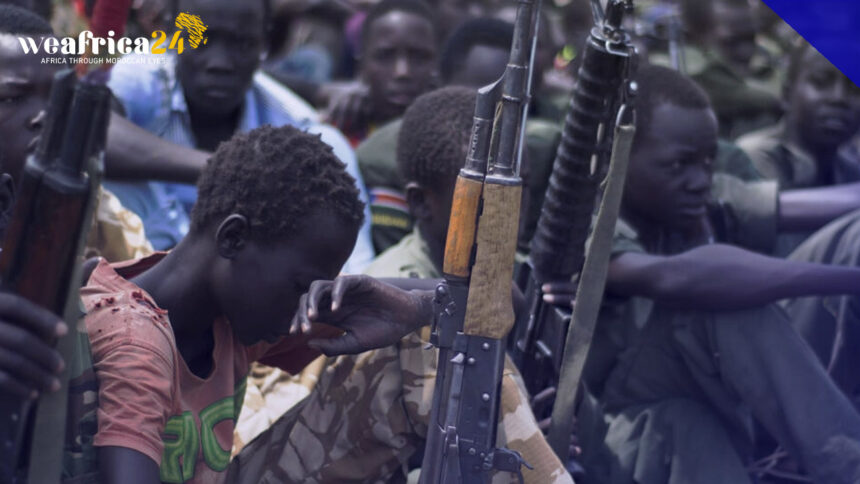The number of children associated with armed groups is on the rise each year, with an estimated 300,000 boys and girls currently forcibly recruited worldwide, a figure that has been steadily increasing in recent years, particularly across the African continent.
In its advocacy efforts, UNICEF emphasizes that these girls and boys, “witnesses to horrors, conflicts, or forced participation, are first and foremost victims.” The UN agency highlights that these children are not necessarily sent to the front lines but are coerced into daily labor, sometimes as young as 6 or 7 years old, subjected to physical abuse, and even sexual violence.
Conflict zones serve as fertile ground for child abductions and forced recruitments, intensified in areas where armed groups prohibit populations from accessing essential resources such as farmlands. UNICEF notes that conflict zones increasingly overlap with regions affected by droughts.
UNICEF acts swiftly, collaborating with affected states to address the issue. For instance, in Somalia in 2002, 600 minors were liberated, and subsequent reintegration processes were established, offering psychological support and family tracing. Within the UN organization, officials emphasize the remarkable resilience of these children and the significant role of their capacity to rebuild despite the traumas endured.
In an interview, Adele Rutsobe, responsible for child protection in humanitarian action in Africa, expresses concern over the escalating numbers. She attributes this trend to various factors, including political instability and the proliferation of armed conflicts. The West and Central African region she operates in witness the highest number of cases, with over 48,000 children recruited and used, with the Democratic Republic of Congo, Nigeria, the Central African Republic, and Mali among the most affected countries globally.
Rutsobe highlights the effectiveness of intervention programs. Former child soldiers reintegrate successfully into society. Drawing from her extensive experience, she cites Mali as a prime example, where hundreds of children, once associated with armed groups, have been rehabilitated and reintegrated into society through comprehensive support services, including socio-economic reintegration and psychosocial counseling.
The success stories in Mali and other countries underscore the importance of adequate care and support services for these vulnerable children. However, the challenges remain significant, requiring sustained efforts from governments, international organizations, and communities to address the root causes and provide lasting solutions for the affected children.
As the crisis persists, it serves as a stark reminder of the urgent need for global cooperation and concerted action to safeguard the rights and well-being of children affected by armed conflicts worldwide.







